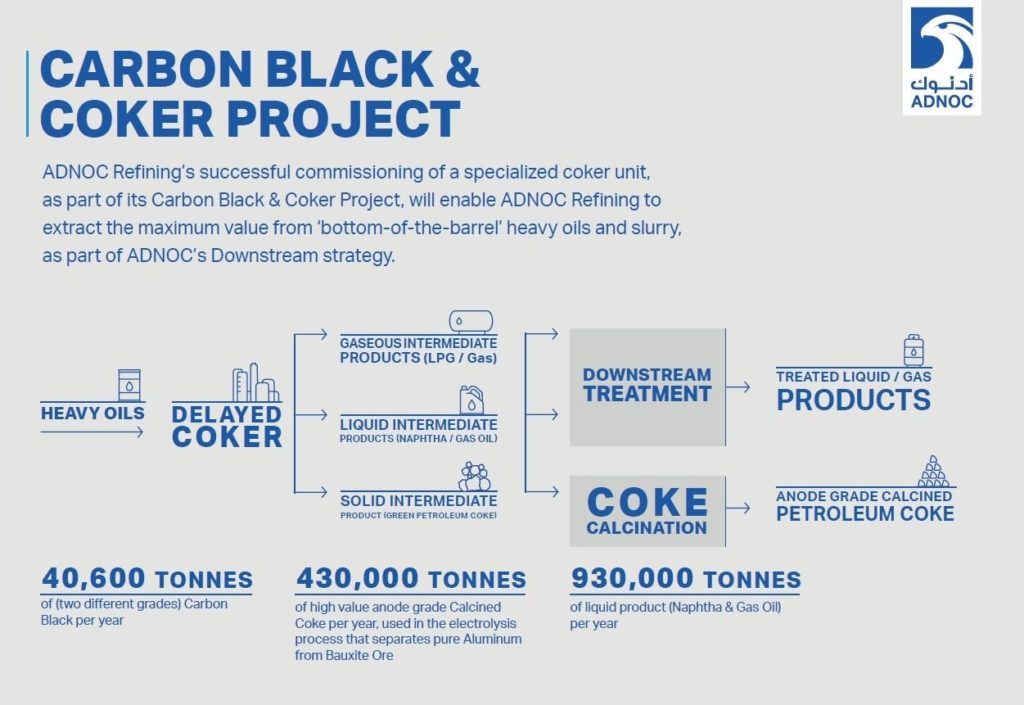On September 2, 2018, ADNOC announced that it successfully commissioned a specialized delayed coker unit as part of its Carbon Black and Coker Project.
The commissioning of the new coker unit coincided with the first production of Green petroleum coke in the UAE. An intermediate product, Green petroleum coke can be further processed to produce either fuel oils, or calcined petroleum coke, a raw material used by the aluminum and steel industries.
 Through the Carbon Black & Coker Project, ADNOC Refining can produce 40,600 tons of two different grades of Carbon black per year, 430,000 tons of high value anode grade calcined coke and 930,000 tons of liquid product (naphtha and gas oil).
Through the Carbon Black & Coker Project, ADNOC Refining can produce 40,600 tons of two different grades of Carbon black per year, 430,000 tons of high value anode grade calcined coke and 930,000 tons of liquid product (naphtha and gas oil).
The downstream investment program will see the company’s refining capacity increase by more than 65%, or 600,000 bpd, by 2025, through the addition of a third refinery, creating a total capacity of 1.5 million barrels per day (mbpd). The new refinery will significantly increase the capability, flexibility and output of Abu Dhabi’s refining operations by adding to the range of crudes that can be processed.
Source: https://www.adnoc.ae/en/news-and-media/press-releases/2018/adnoc-takes-next-step-in-growing-its-downstream-operations
See more featured cokes at https://coking.com/category/featured-cokers/
Coking.com a part of Refining Community Consultants offers delayed coker field services, design review, site audits and consulting.
One response to “”
Leave a Reply
You must be logged in to post a comment.







Abu Dhabi National Oil Company said its carbon black and delayed coker unit has produced the UAE’s first ever calcined coke, which is now being shipped to China.
The production of calcined coke is “a significant step towards being a refining business capable of producing zero-fuel oil,” the company said in a statement. It added that the new unit “allows ADNOC to extract the maximum value from sulfur-heavy ‘bottom-of-the-barrel’ oils and slurry, as it delivers on its downstream strategy.”
The company said it “made zero-fuel-oil refining a high priority when the International Marine Organization’s 2020 regulation was first proposed in an effort to limit the potential environmental impact of global shipping fleets.” (The purpose of IMO regulations are to reduce the sulfur content contained in marine fuels from 3.5% to 0.5%)